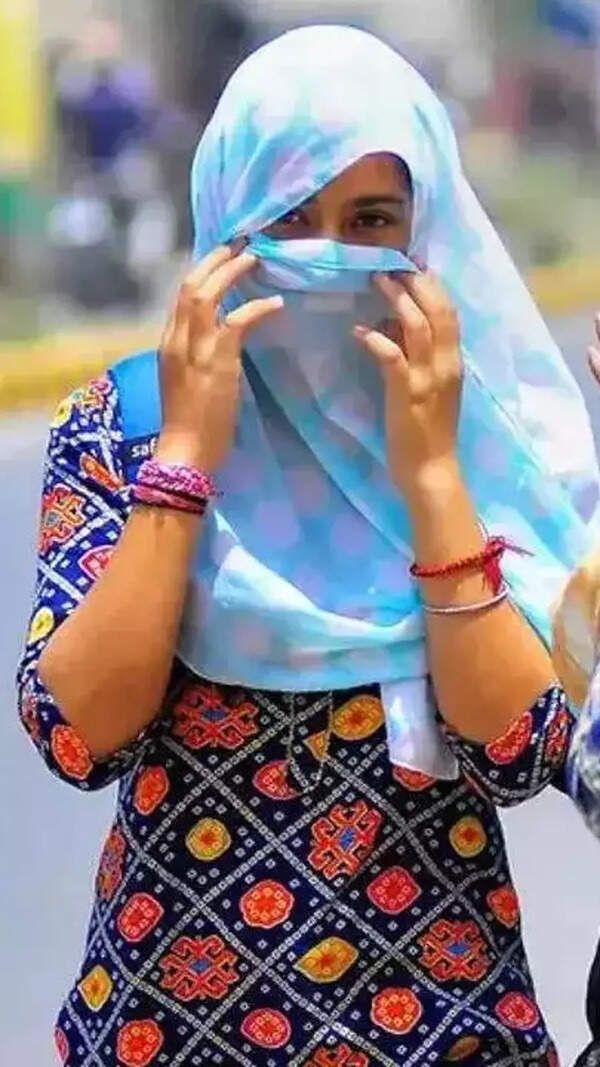- News
- India News
- Finding young geniuses in India’s gullies and mohallas
Trending Topics
Finding young geniuses in India’s gullies and mohallas

Satyam Verma, who is doing BSc physics honours at Sri Venkateswara College in Delhi, often pinches himself to ensure he is not dreaming. The son of a daily wage labourer, Verma used to study at a school for street children in Varanasi. Though he was a good student, Verma was certain he would have had to drop out after class 12 and take up some menial job as his family could not afford to pay for college. But life changed when senior officials from Mensa, a non-profit organisation for people with high IQ, walked into his school six years ago. After an intelligence test of all grade 9 students, they took charge of the studies, and lives, of a handful of ‘gifted’ children, including Verma.
Verma was shifted to a private school and enrolled in English language improvement classes. He was given challenging assignments, enrolled in workshops and offered one-on-one career counselling. “After class 12, I wanted to go to Delhi to study. Mensa paid my fees, hostel expenses, food and travel. I just had to worry about studies,” says the 21-year-old, who hopes to go to IIT for a masters degree. Typically, Mensa, which was founded in England in 1946 and boasts of more than 1.5 lakh members in 90 countries, is an elite society which offers membership by invitation to children and youth who score in the top two percent in an approved IQ test. But in 2008,
Mensa’s India chapter launched Tribal Mensa Nurturing Program and in 2016 they started Project Dhruv to find, and nurture, young geniuses from poor families of the country. “There are an estimated six lakh children in India’s underprivileged section who have a genius level IQ (above 130). At least 6,000 to 10,000 of them would be at the same level as Einstein or Hawking (above 160) but their genius is going unnoticed,” says Kishore Asthana, president of Project Dhruv. Mensa has tested 10,000 children, aged 11 to 15 years, from Gurgaon, Varanasi and Rishikesh and selected 300 ‘scholars’ under Project Dhruv so far. Last July, Tribal Mensa ‘found’ 740 genius children among 10,000 students in rural Maharashtra’s remote pockets. The selected students are provided financial and academic support as well as career counselling.
“We have created a template and prepared a lot of study material so the same model can be replicated in other states,” says Dr Narayan Desai, founder of Tribal Mensa. Some of the children who were picked under Project Dhruv have recently entered the professional space and are doing well — the organisation hand-holds scholars till they get a decent job.
Anmol, whose father was unemployed and mother worked as a sweeper, now earns Rs 60,000 a month working as a software developer at a multinational in Mumbai. “When I was a little boy, the municipal corporation razed my house and we had to sleep on the street in chilly February,” he recalls. He is happy he’s come a long way since then, as has Nancy Priya, a 19-year-old who works as a flight attendant with Indigo. Seven years ago, Priya was just another student at Vidya School in Gurgaon, who after tuitions, helped out at her parents’ grocery store in Nathupur village. Priya was picked by Mensa and has received support since then. “I joined Indigo in April and I have rented a flat in Kochi. I send money to my parents every month as my father is unwell and I am also doing my bachelor’s degree via correspondence. Mensa even paid a Rs 50,000 deposit for my induction at Indigo,” says Priya.
The organisations provide all kinds of assistance through tie-ups with a private airline and other donors. Sanjana Nagar, another Gurgaon-based Dhruv scholar, found it difficult to study in her one-room tenement while her siblings played and mother cooked. A study room was arranged for her and other students at a neighbourhood school. After class 12, her fees for studying English honours at Lady Shri Ram College in Delhi was taken care of as well as books and travel expenses. “The commute to college by metro costs Rs 4,000 per month. My parents would not be able to afford that,” says the 23-year-old whose father works as a driver. When Nagar decided to sit for the civil services examination after graduation, her stay at a UPSC study centre at Rajinder Nagar was funded. Nagar says there was emotional support too. “They introduced me to meditation techniques so I could stay calm and cope with my emotional turbulence,” she says. In her community (Gujjar) girls are not encouraged to study and this additional assistance and motivation was helpful, she says. Asthana says that for him and other senior officials at Mensa, the aim is to optimise the potential of the children selected. “Intelligence is India’s greatest resource, but it is completely neglected. Often when you tell a child that he or she is intelligent, something flips in their mind and they start working much harder and doing even better,” he says.
Verma was shifted to a private school and enrolled in English language improvement classes. He was given challenging assignments, enrolled in workshops and offered one-on-one career counselling. “After class 12, I wanted to go to Delhi to study. Mensa paid my fees, hostel expenses, food and travel. I just had to worry about studies,” says the 21-year-old, who hopes to go to IIT for a masters degree. Typically, Mensa, which was founded in England in 1946 and boasts of more than 1.5 lakh members in 90 countries, is an elite society which offers membership by invitation to children and youth who score in the top two percent in an approved IQ test. But in 2008,
Mensa’s India chapter launched Tribal Mensa Nurturing Program and in 2016 they started Project Dhruv to find, and nurture, young geniuses from poor families of the country. “There are an estimated six lakh children in India’s underprivileged section who have a genius level IQ (above 130). At least 6,000 to 10,000 of them would be at the same level as Einstein or Hawking (above 160) but their genius is going unnoticed,” says Kishore Asthana, president of Project Dhruv. Mensa has tested 10,000 children, aged 11 to 15 years, from Gurgaon, Varanasi and Rishikesh and selected 300 ‘scholars’ under Project Dhruv so far. Last July, Tribal Mensa ‘found’ 740 genius children among 10,000 students in rural Maharashtra’s remote pockets. The selected students are provided financial and academic support as well as career counselling.
“We have created a template and prepared a lot of study material so the same model can be replicated in other states,” says Dr Narayan Desai, founder of Tribal Mensa. Some of the children who were picked under Project Dhruv have recently entered the professional space and are doing well — the organisation hand-holds scholars till they get a decent job.
Anmol, whose father was unemployed and mother worked as a sweeper, now earns Rs 60,000 a month working as a software developer at a multinational in Mumbai. “When I was a little boy, the municipal corporation razed my house and we had to sleep on the street in chilly February,” he recalls. He is happy he’s come a long way since then, as has Nancy Priya, a 19-year-old who works as a flight attendant with Indigo. Seven years ago, Priya was just another student at Vidya School in Gurgaon, who after tuitions, helped out at her parents’ grocery store in Nathupur village. Priya was picked by Mensa and has received support since then. “I joined Indigo in April and I have rented a flat in Kochi. I send money to my parents every month as my father is unwell and I am also doing my bachelor’s degree via correspondence. Mensa even paid a Rs 50,000 deposit for my induction at Indigo,” says Priya.
The organisations provide all kinds of assistance through tie-ups with a private airline and other donors. Sanjana Nagar, another Gurgaon-based Dhruv scholar, found it difficult to study in her one-room tenement while her siblings played and mother cooked. A study room was arranged for her and other students at a neighbourhood school. After class 12, her fees for studying English honours at Lady Shri Ram College in Delhi was taken care of as well as books and travel expenses. “The commute to college by metro costs Rs 4,000 per month. My parents would not be able to afford that,” says the 23-year-old whose father works as a driver. When Nagar decided to sit for the civil services examination after graduation, her stay at a UPSC study centre at Rajinder Nagar was funded. Nagar says there was emotional support too. “They introduced me to meditation techniques so I could stay calm and cope with my emotional turbulence,” she says. In her community (Gujjar) girls are not encouraged to study and this additional assistance and motivation was helpful, she says. Asthana says that for him and other senior officials at Mensa, the aim is to optimise the potential of the children selected. “Intelligence is India’s greatest resource, but it is completely neglected. Often when you tell a child that he or she is intelligent, something flips in their mind and they start working much harder and doing even better,” he says.
Start a Conversation
FOLLOW US ON SOCIAL MEDIA
FacebookTwitterInstagramKOO APPYOUTUBE







